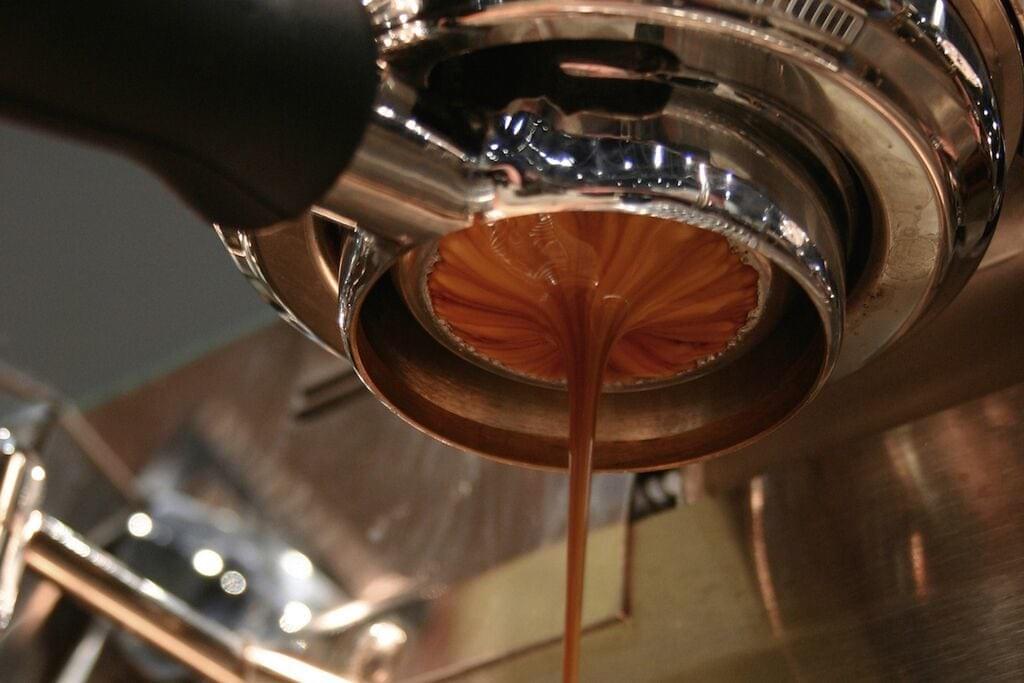The difference between Arabica beans and Robusta beans Why are Arabica beans superior?

Professional coffee knowledge exchange more coffee bean information please follow the coffee workshop (Wechat official account cafe_style)
At present, there are three kinds of coffee beans in the world:
1. Arabica (Arabica): accounts for about 90% of the world coffee market, the aroma is changeable, it is not easy to grow, and its uses are more popular in the boutique bean market.
two。 Robusta (Robusta): accounts for about 10% of the trade volume, the plant life is strong, the disadvantage is that the smell is very strong, mostly used in commercial beans
Chemical composition: (Arabica / Robusta) detected by percentage of raw bean content
Polysaccharides: 45 / 49 monosaccharides: 0.5 / 0.5 sucrose: 9 / 5 lipids: 18 / 12 proteins: 13 / 13 organic acids: 8 / 10 caffeine: 1.2 / 2.4
1. In the part of carbohydrate content, we can see that Robusta has more polysaccharides than Arabica, that is, the lignin of plants, and the Lignification of Robusta beans is more than Arabica.
Monosaccharides, that is, fructose, are evenly split; in the part of sucrose, the difference is so large that Arabica beans contain almost twice as much sucrose as Robusta.
Because sucrose (that is, disaccharides) will degrade and polymerize in the process of baking, some of which will be converted to acid and some will react with lipids and proteins.
It turns into a variety of fascinating aromas in the coffee extract, and a larger part is caramelized in the browning reaction.
The most obvious way to judge is to smell the bottom of the coffee cup, whether there is a strong aroma of caramel.
two。 In the part of lipids, the content of Arabica beans is also higher than that of robusta beans. During the baking process, some lipids are taken out of the stamens with water and tannin, and form on the surface of cooked beans.
A thin oil film, the deeper the beans are baked, the more obvious the oil film will be, and the oil film on the surface will oxidize rapidly with the contact with air.
3. The protein part is also evenly divided. Let's look at the organic acids in coffee. Most of the organic acids in coffee beans are chlorogenic acid (Chlorogenic Acids).
The chlorogenic acid content of Robusta seems to be higher than that of Arabica beans, which is due to the difference in their growth environment. Because Robusta plants grow at low elevations, their diseases and insect pests are also relatively high.
It has increased a lot, so according to the law of survival of the fittest, Robusta plants will produce a large amount of chlorogenic acid to resist diseases and insect pests.
4. Chlorogenic acid characteristics: it is the source of acidity in coffee extract, so Robusta tastes more bitter than Arabica, which is another reason why the price is lost to Arabica.
But fortunately, chlorogenic acid will be degraded by more than 50% in the process of baking, and the deeper the baking, the more degradation.
That's why the deeper the roasted coffee beans are, the less sour they are. Moreover, chlorogenic acid, though not loved, is a powerful antioxidant.
5. Caffeine, Robusta nearly twice as much as Arabica, the right amount of caffeine can help to boost the spirits of drinkers, but excessive caffeine will do no small harm to the human body, some people often because of sleep
The main reason why they dare not drink coffee due to sleep disorder is that the proportion of Robusta has been increased by unscrupulous businessmen in order to reduce costs.
Important Notice :
前街咖啡 FrontStreet Coffee has moved to new addredd:
FrontStreet Coffee Address: 315,Donghua East Road,GuangZhou
Tel:020 38364473
- Prev

What you should know about coffee with beans Blend, are beans really that delicious?
Professional Coffee knowledge Exchange more information about coffee beans Please follow the coffee workshop (Wechat official account cafe_style) Today let's talk about the antonym of individual coffee-mixed coffee. Like snowflakes, no two individual coffees in the world are exactly the same, but the most important feature of mixed beans is its excellent consistency and stability. Skilled bean bakers will clearly find out the market.
- Next

A brief Analysis of the effect of Coffee Oil on the body and the reason for insufficient Oil extraction
Professional coffee knowledge exchange more coffee bean information please follow the coffee workshop (Wechat official account cafe_style) what is Crema? Coffee grease is a layer of coffee foam with rich taste and aroma floating on coffee. To put it simply, the high temperature and high pressure in the brewing process combines the air with the soluble fat in the coffee, and the coffee oil is produced. Some people will put this kind of
Related
- Guji coffee producing area of Guji, Ethiopia: Humbela, Shakiso, Wulaga
- What is the most expensive variety of Qiloso in BOP multi-variety group?
- How to store the coffee beans bought home?
- Why are Yemeni coffee beans so rare now?
- Ethiopian Sidamo all Red Fruit Sun Sun Santa Vini Coffee beans
- SOE is mostly sour? What does it mean? Is it a single bean? what's the difference between it and Italian blending?
- Is Italian coffee beans suitable for making hand-brewed coffee?
- How to choose coffee beans when making cold coffee? What kind of coffee beans are suitable for making cold coffee?
- Just entered the pit to make coffee, what kind of coffee beans should be chosen?
- Can only Japan buy real Blue Mountain Coffee? What are authentic Jamaican Blue Mountain coffee beans?

